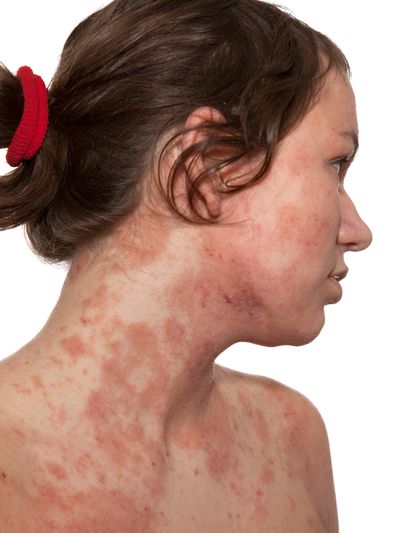ATOPIC DERMATITIS
Atopic dermatitis (AD), commonly known as eczema, is a chronic inflammatory skin condition that affects millions of people worldwide. This condition is characterised by dry, itchy skin that can become red and inflamed. The severity of AD can vary significantly; while some individuals may experience mild symptoms, others may face more severe and persistent outbreaks.
AD is extremely common with as many as 1 in 5 children and 1 in 10 adults suffering from the disease. The exact cause of AD is not fully understood, but it is believed to result from a combination of genetic, environmental, and immunological factors. Moreover, environmental triggers such as allergens, irritants, and climate changes can exacerbate symptoms.
Common symptoms of AD include dry, cracked skin, intense itching, and redness. These symptoms can lead to sleep disturbances, emotional distress, and a decreased quality of life. Areas most affected include the face, neck, inside the elbows and knees, and hands. In children, the scalp and face are often involved, while adults may experience symptoms in more localised areas.
Managing AD typically involves a multi-faceted approach, but key to this are topical treatments.
Moisturisers are the most common form of treatment, and AD patients’ medicines cabinets will be brimming with such creams and lotions.
Moisturisers can help restore the skin barrier function and reduce dryness but do nothing to treat the underlying causes of the disease.
Topical corticosteroids are commonly prescribed to alleviate inflammation and itching during flare-ups, but, whilst effective, steroids cannot be used long-term due to significant side effects on the skin.
The final class of topical treatments are the topical calcineurin inhibitors (TCIs). These are also effective in tackling the underlying inflammation associated with AD and, unlike steroids, can be used for more chronic treatment. However, the TCIs carry significant safety concerns, most notably around potential tumour risk, and as a result have ‘black box’ warning for their use. Also, the drug forms of the TCIs are suboptimal and some patients also report unacceptable burning sensations in their use.
There is therefore a large unmet medical need for new topical treatments that are effective in helping AD patients manage their disease and complementary to current topical and systemic treatments.
Are you an AD sufferer? For further information and advice on the diseases, please visit the National Eczema Society at https://eczema.org/

